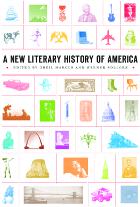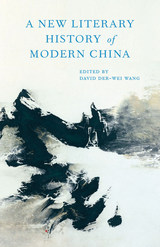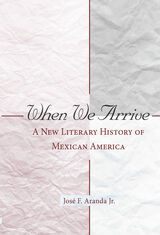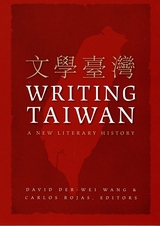
America is a nation making itself up as it goes along—a story of discovery and invention unfolding in speeches and images, letters and poetry, unprecedented feats of scholarship and imagination. In these myriad, multiform, endlessly changing expressions of the American experience, the authors and editors of this volume find a new American history.
In more than two hundred original essays, A New Literary History of America brings together the nation’s many voices. From the first conception of a New World in the sixteenth century to the latest re-envisioning of that world in cartoons, television, science fiction, and hip hop, the book gives us a new, kaleidoscopic view of what “Made in America” means. Literature, music, film, art, history, science, philosophy, political rhetoric—cultural creations of every kind appear in relation to each other, and to the time and place that give them shape.
The meeting of minds is extraordinary as T. J. Clark writes on Jackson Pollock, Paul Muldoon on Carl Sandburg, Camille Paglia on Tennessee Williams, Sarah Vowell on Grant Wood’s American Gothic, Walter Mosley on hard-boiled detective fiction, Jonathan Lethem on Thomas Edison, Gerald Early on Tarzan, Bharati Mukherjee on The Scarlet Letter, Gish Jen on Catcher in the Rye, and Ishmael Reed on Huckleberry Finn. From Anne Bradstreet and John Winthrop to Philip Roth and Toni Morrison, from Alexander Graham Bell and Stephen Foster to Alcoholics Anonymous, Life, Chuck Berry, Alfred Hitchcock, and Ronald Reagan, this is America singing, celebrating itself, and becoming something altogether different, plural, singular, new.

Literature, from the Chinese perspective, makes manifest the cosmic patterns that shape and complete the world—a process of “worlding” that is much more than mere representation. In that spirit, A New Literary History of Modern China looks beyond state-sanctioned works and official narratives to reveal China as it has seldom been seen before, through a rich spectrum of writings covering Chinese literature from the late-seventeenth century to the present.
Featuring over 140 Chinese and non-Chinese contributors from throughout the world, this landmark volume explores unconventional forms as well as traditional genres—pop song lyrics and presidential speeches, political treatises and prison-house jottings, to name just a few. Major figures such as Lu Xun, Shen Congwen, Eileen Chang, and Mo Yan appear in a new light, while lesser-known works illuminate turning points in recent history with unexpected clarity and force. Many essays emphasize Chinese authors’ influence on foreign writers as well as China’s receptivity to outside literary influences. Contemporary works that engage with ethnic minorities and environmental issues take their place in the critical discussion, alongside writers who embraced Chinese traditions and others who resisted. Writers’ assessments of the popularity of translated foreign-language classics and avant-garde subjects refute the notion of China as an insular and inward-looking culture.
A vibrant collection of contrasting voices and points of view, A New Literary History of Modern China is essential reading for anyone seeking a deeper understanding of China’s literary and cultural legacy.

In this bold new look at the American canon, Aranda weaves the threads of Mexican American literature into the broader tapestry of Anglo American writing, especially its Puritan origins, by pointing out common ties that bind the two traditions: narratives of persecution, of immigration, and of communal crises, alongside chronicles of the promise of America. Examining texts ranging from María Amparo Ruiz de Burton's 1872 critique of the Civil War, Who Would Have Thought It?, through the contemporary autobiographies of Richard Rodriguez and Cherríe Moraga, he surveys Mexican American history, politics, and literature, locating his analyses within the context of Chicano/a cultural criticism of the last four decades.
When We Arrive integrates Early American Studies and Chicano/a Studies into a comparative cultural framework by using the Puritan connection to shed new light on dominant images of Chicano/a narrative, such as Aztlán and the borderlands. Aranda explores the influence of a nationalized Puritan ethos on nineteenth- and twentieth-century writers of Mexican descent, particularly upon constructions of ethnic identity and aesthetic values. He then frames the rise of contemporary Chicano/a literature within a critical body of work produced from the 1930s through the 1950s, one that combines a Puritan myth of origins with a literary history in which American literature is heralded as the product and producer of social and political dissent.
Aranda's work is a virtual sourcebook of historical figures, texts, and ideas that revitalizes both Chicano/a studies and American literary history. By showing how a comparative study of two genres can produce a more integrated literary history for the United States, When We Arrive enables critics and readers alike to see Mexican American literature as part of a broader tradition and establishes for its writers a more deserving place in the American literary imagination.

Because the island of Taiwan spent the first half of the century as a colony of Japan and the second half in an umbilical relationship to China, its literature challenges basic assumptions about what constitutes a “national literature.” Several contributors directly address the methodological and epistemological issues involved in writing about “Taiwan literature.” Other contributors investigate the cultural and political grounds from which specific genres and literary movements emerged. Still others explore themes of history and memory in Taiwan literature and tropes of space and geography, looking at representations of boundaries as well as the boundary-crossing global flows of commodities and capital. Like Taiwan’s history, modern Taiwan literature is rife with conflicting legacies and impulses. Writing Taiwan reveals a sense of its richness and diversity to English-language readers.
Contributors. Yomi Braester, Sung-sheng Yvonne Chang, Fangming Chen, Lingchei Letty Chen, Chaoyang Liao, Ping-hui Liao, Joyce C. H. Liu, Kim-chu Ng, Carlos Rojas, Xiaobing Tang, Ban Wang, David Der-wei Wang, Gang Gary Xu, Michelle Yeh, Fenghuang Ying
READERS
Browse our collection.
PUBLISHERS
See BiblioVault's publisher services.
STUDENT SERVICES
Files for college accessibility offices.
UChicago Accessibility Resources
home | accessibility | search | about | contact us
BiblioVault ® 2001 - 2024
The University of Chicago Press









